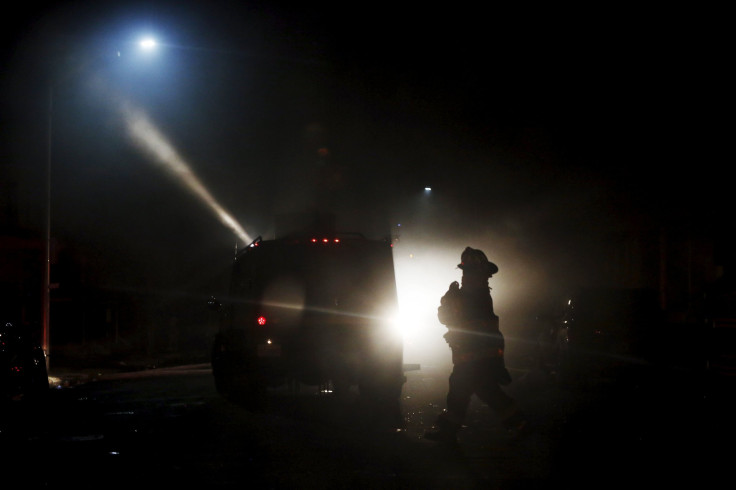Baltimore Riots 2015: Looting Witness Recalls Mob Assaulting White Men After Freddie Gray Funeral

BALTIMORE -- The city was burning, and Curtis Moore had to hightail it to work. The 72-year-old lifelong Baltimore resident said he witnessed a mob assaulting white people on Monday night as they looted a shoe store about four blocks from the DoubleTree hotel where he serves as a concierge.
“They were assaulting White Anglo-Saxon Protestants on the street, taking their wallets, taking their cell phones,” Moore recalled of the 10:25 p.m. incident at Shoe City on Greenmount Avenue in East Baltimore. The mob also took victims’ shoes, and sizes that didn’t fit the perpetrators were sold “for pennies on the dollar,” he said.
“I did the great escape and caught the 22 bus to work. I was in harm’s way,” said Moore, who is black. “It’s still total chaos out there. The people are outnumbering the police officers.”
The incident was among several that marked chaos in the city following the funeral for Freddie Gray, a 25-year-old black man who died in the back of a police van last week following a spinal injury. Many Baltimoreans viewed Gray’s death on April 19 as another example of excessive police force, following a spate of officer-involved deaths around the country in recent months.
Businesses were looted, and buildings and cars were set on fire across the city, though there were no official connections between the violence and Gray’s funeral. At least 15 officers were hurt in the incidents, according to Baltimore Police Chief Anthony Batts, who said officers were being hit by rocks and bottles. The unrest led Baltimore Mayor Stephanie Rawlings-Blake to institute a 10 p.m. to 5 a.m. curfew, starting Tuesday. City schools were also ordered to remain closed on Tuesday.
Moore said he didn’t condone the violence, which police mainly attributed to young people, but added that he understood the protesters' point of view. He said the demonstrations were about more than Gray’s death.
“It’s not a black and white issue all the time. This is about economics,” he said. “There’s no jobs. So many black boys [have] been incarcerated that they can’t get a job.”
Moore said part of the problem is that the city is not integrated, with white, Jewish, black and Italian people living in their own enclaves without learning how to live with each other.
“Baltimore City is a very racist city,” he said. “It’s all segregated and now it’s clashing. If you’re in the ghetto [and] they know you don’t belong in the ghetto, you’re in trouble. You’re a fish in a fishbowl.”
The tension was palpable among others in the city. Before getting into her car, a front-desk clerk asked Moore if she should stay overnight at the hotel instead of going home. A campus police car from nearby Johns Hopkins University was seen escorting a visibly nervous man into the DoubleTree for safety.
A cab driver on the night shift said he was avoiding dangerous parts of the city on Monday, showing a reporter a tap light he put on his dashboard in hopes that violent protesters wouldn’t target his cab. “I don’t want to get shot,” he said.
© Copyright IBTimes 2024. All rights reserved.






















